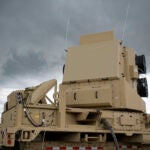
Federal civilian agencies have moved quickly to remediate their networks and bolster their defenses from a recently disclosed cybersecurity vulnerability, although small and medium-size agencies that are resource-constrained have needed help, a top cybersecurity official within the Department of Homeland Security said on Monday. From the time the Log4Shell vulnerability was publicly disclosed a month ago, there haven’t been any confirmed significant intrusions into government or private sector networks, another DHS official said. There has been “widespread exploitation by criminal…

 By
By 










